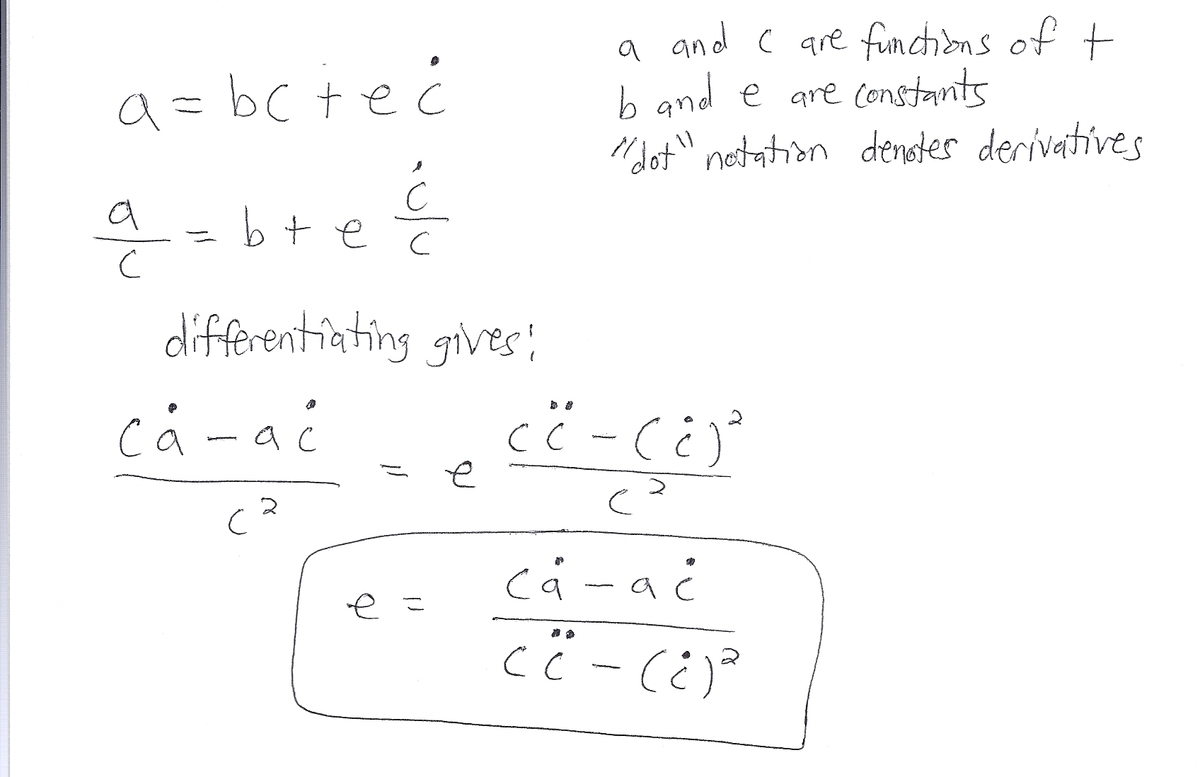Differentiate It Away
Suppose we have the following relationship:
a ( t ) = b ∗ c ( t ) + e ∗ d t d c ( t )
The " ∗ " above denotes multiplication. As shown above, a ( t ) and c ( t ) are functions of the parameter t , and parameters b and e are constants. Suppose that we want to solve for e without referring to b . The parameter e can be written as:
e = c ( t ) ∗ d t Y d Y c ( t ) − ( d t Z d Z c ( t ) ) 2 c ( t ) ∗ d t W d W a ( t ) − a ( t ) ∗ d t X d X c ( t )
Parameters W , X , Y , and Z denote the numbers of derivatives of their respective functions. Determine ( W + X + Y + Z ).
The answer is 5.
This section requires Javascript.
You are seeing this because something didn't load right. We suggest you, (a) try
refreshing the page, (b) enabling javascript if it is disabled on your browser and,
finally, (c)
loading the
non-javascript version of this page
. We're sorry about the hassle.
